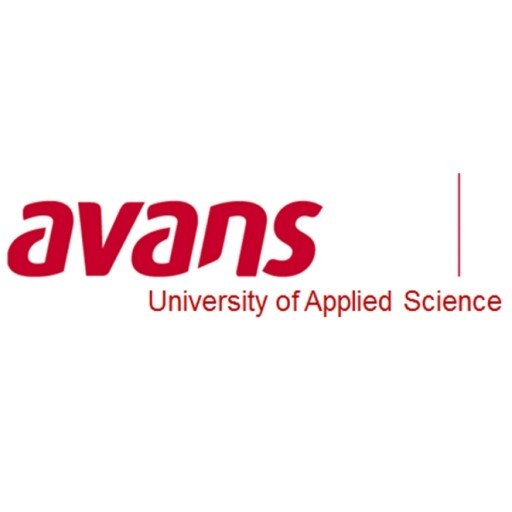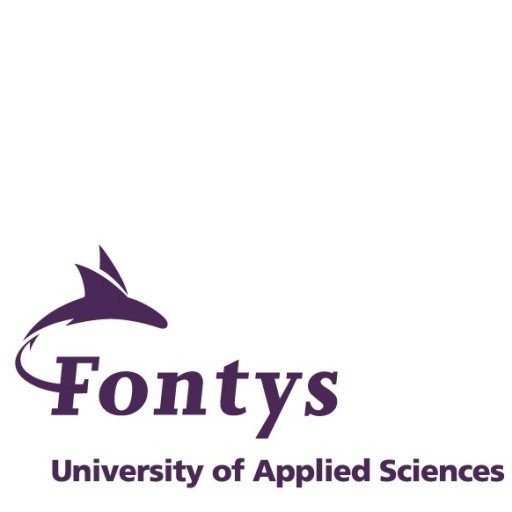Photos of university / #dehaagsehogeschool
Facility Management at The Hague University of Applied Sciences is a comprehensive bachelor’s degree program designed to prepare students for the dynamic and diverse field of facility management. This program integrates technical knowledge, management skills, and sustainable practices to ensure efficient, effective, and sustainable management of buildings, infrastructure, and services within various organizations. Students will learn to coordinate and optimize all aspects of facility operations, including maintenance, safety, security, environment, and space management, with a strong focus on customer service and stakeholder satisfaction. The curriculum combines theoretical understanding with practical application, utilizing real-world projects and internships to give students valuable industry experience. The program emphasizes sustainable facility management practices, digital innovations, and strategic planning to meet current industry demands. Graduates will be equipped to pursue careers in facility management, property management, and related fields, occupying roles such as facility manager, maintenance manager, or sustainability officer. Throughout their studies, students will develop critical problem-solving skills, leadership qualities, and a proactive approach to managing complex facility systems. The program also fosters international outlook and collaboration, preparing students for working in diverse global environments. By integrating innovative teaching methods, industry collaboration, and a focus on sustainability, the Facility Management program at The Hague University aims to produce competent professionals capable of making significant contributions to the evolving facility management sector worldwide.
The Bachelor's Degree Programme in Facility Management at The Hague University of Applied Sciences offers students a comprehensive education designed to prepare them for a dynamic career in managing and optimizing built environments. Throughout this program, students will gain a thorough understanding of the principles and practices involved in maintaining, operating, and improving various facilities within organizations. The curriculum is carefully structured to combine theoretical knowledge with practical skills, ensuring graduates are well-equipped to meet the demands of the global facility management industry.
In the first year, students are introduced to fundamental concepts such as maintenance strategies, organization and management principles, sustainability, and the role of facility management within different sectors. They develop a solid foundation in business administration, project management, and communication skills. The program emphasizes understanding the importance of safety regulations, quality standards, and environmental considerations in the facility management domain.
As students progress into the second year, they delve deeper into specialized topics including real estate management, energy management, financial planning, and service management. Emphasis is placed on developing strategic thinking and problem-solving abilities. Practical assignments, case studies, and internships are integrated into the curriculum to foster experiential learning and industry insight. Students also acquire skills in digital technologies relevant to facility management, such as building management systems and data analysis tools.
The final year focuses on integrating knowledge through complex projects and thesis work, where students are encouraged to address real-world challenges faced by facility managers. Collaboration with industry partners enables students to apply their skills in practical settings, enhancing their readiness for the workforce. The program also prepares students for leadership roles by emphasizing teamwork, ethical considerations, and innovation in facility management.
Throughout the programme, students will learn to coordinate and oversee the maintenance, safety, and sustainability of facilities, ensuring optimal operational performance. They will be capable of managing diverse teams, negotiating contracts, and coordinating with stakeholders. The interdisciplinary nature of the programme fosters adaptability and strategic vision, essential qualities for future facility managers.
Graduates of the Facility Management Bachelor's programme at The Hague University of Applied Sciences are prepared for a variety of roles such as facility managers, maintenance managers, sustainability consultants, or real estate managers. They will be equipped with the skills and knowledge necessary to contribute to efficient, safe, and sustainable management of facilities across numerous sectors, including commercial, healthcare, education, and government. The programme’s emphasis on practical experience, industry partnerships, and international outlook ensures graduates are competitive in the global market and ready to shape the future of facility management.
Program requirements for the Bachelor of Science in Facility Management at The Hague University of Applied Sciences typically include a combination of educational background, language proficiency, and specific consisderations related to the program's admissions policies. Candidates are expected to have completed a secondary education that qualifies them for university-level study, such as the Dutch VWO diploma or an equivalent international qualification. The program places emphasis on applicants demonstrating strong analytical skills, problem-solving abilities, and an interest in the management and maintenance of facilities and services within organizations. Proficiency in English is essential, as the program is conducted entirely in English; therefore, applicants must provide proof of English language proficiency through standardized tests such as IELTS, TOEFL, or equivalent, meeting the minimum score requirements set by the university. Additionally, applicants should submit a completed application form, academic transcripts, a motivation letter explaining their interest in facility management, and letters of recommendation if required. The university may also consider relevant work experience or extracurricular activities related to facilities or management fields as part of the selection process. For international students, compliance with visa and residence permit regulations is necessary. Some programs or applicants may also be required to attend an interview or assessment to evaluate their suitability for the program. The curriculum is designed to combine theoretical knowledge with practical skills, thus a proactive attitude towards internships and real-world projects is advantageous. Admission standards are competitive, with priority given to applicants who demonstrate a clear motivation, relevant background, and readiness to engage with the multifaceted aspects of facility management. The program aims to prepare students for a diverse and evolving industry, so prospective students are encouraged to review the specific admission criteria posted on the university’s official website and ensure all documentation is submitted in accordance with deadlines and requirements.
The Hague University of Applied Sciences offers various financing options for students enrolled in the Facility Management program. International students can apply for student loans and grants through their home country’s government or through international financial aid schemes, depending on their nationality and residency status. The university itself provides several scholarships and grants based on academic performance, need, or specific criteria related to the program. Additionally, students may choose to finance their studies through private loans or sponsorships, although these options often require pre-approval and may have higher interest rates.
The Dutch government does not provide direct funding for all international students, but students from EU/EEA countries may have access to in-state tuition fees, which significantly reduces the cost of their studies and consequently alters their financing needs. For students from outside the EU/EEA, the tuition fees are higher, and they are advised to explore scholarship opportunities at the university or through external organizations dedicated to international education funding. The university also recommends checking with your home country’s education department or financial institutions to identify possible loan options or scholarship programs available for studying in the Netherlands.
Furthermore, the university offers financial advisory services to help students plan their finances effectively during their studies. These services include information about budgeting, available part-time work opportunities on or off-campus, and legal regulations concerning student work in the Netherlands. Part-time employment can be a valuable source of additional income but must comply with the legal work restrictions for international students.
Students are encouraged to prepare a comprehensive financial plan prior to starting their studies, including tuition costs, accommodation, living expenses, health insurance, and personal expenses. The university also emphasizes the importance of applying for scholarships and financial aid early, as some funding options have limited availability or require application well in advance of the academic year. Overall, financing studies at The Hague University of Applied Sciences requires careful planning and resource management to ensure a smooth educational experience without financial hardship.
The Facility Management program at The Hague University of Applied Sciences is designed to prepare students for a dynamic and evolving field that focuses on the efficient and effective management of buildings, infrastructures, and services within organizations. This program emphasizes a multidisciplinary approach, combining technical knowledge with management skills to ensure the optimal functioning of physical environments in various sectors, including healthcare, education, commercial, and industrial settings. Students gain a comprehensive understanding of building maintenance, safety protocols, sustainability practices, and the integration of technological solutions to improve operational efficiency. The program curriculum includes courses in project management, financial management, real estate, and sustainability, providing graduates with a versatile skill set adaptable to multiple roles within the facility management sector. Practical training and internships are integral components, offering hands-on experience and closer industry engagement. The program also fosters soft skills such as communication, teamwork, and problem-solving, which are essential for managing diverse stakeholder interests and leading cross-disciplinary teams. Graduates of this program are equipped to pursue careers as facility managers, maintenance coordinators, project leaders, or consultants, contributing to the sustainable and efficient operation of organizational facilities. The teaching approach combines theoretical academic knowledge with practical application, ensuring that students are well-prepared for real-world challenges upon graduation. Moreover, the program benefits from strong industry connections and partnerships, which facilitate internships, guest lectures, and job placements, thus enhancing employability prospects. The Hague University of Applied Sciences is committed to providing an international learning environment, attracting students from around the world, and preparing graduates to operate effectively in global facility management contexts. Overall, this program is tailored to meet the demands of a rapidly changing industry, with an emphasis on innovation, sustainability, and strategic management of physical assets.






